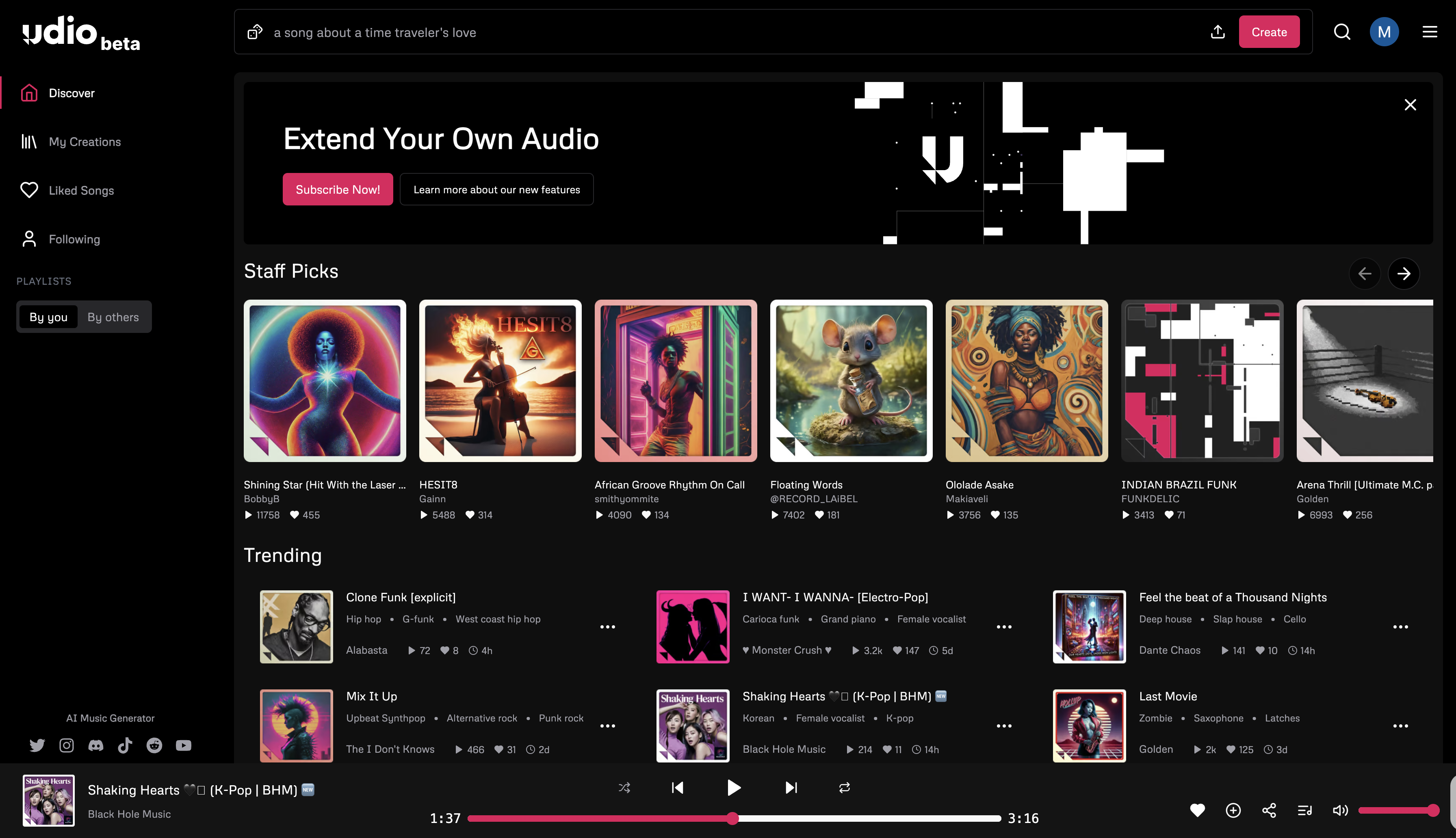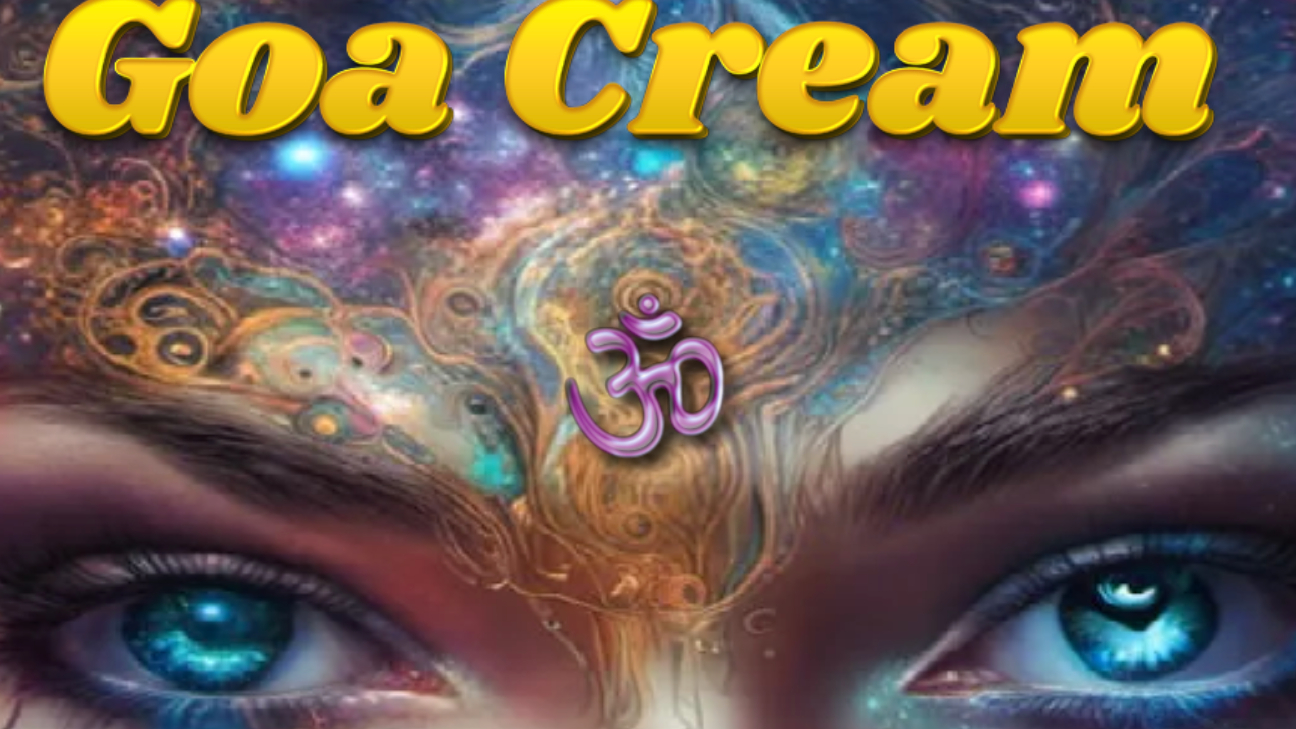Struggling to finish a song? This AI music generator could finish it for you
The latest update to AI-powered music generators Udio and Suno gives them the power to extend any musical idea you upload into a new track

Over the past year, we've seen AI-powered music generators develop in sophistication at a scarily fast pace. First, we had Riffusion, then Google's MusicLM, Meta's MusicGen, and then Stability AI's Stable Audio arrived on the scene.
This year, though, two new platforms have completely blown all previous efforts out of the water: Suno and Udio. To recap, all of these are generative AI tools, trained on vast libraries of existing music, that have the capacity to almost instantly generate musical clips based on instructions, or prompts, provided by the user.
Where MusicLM could only produce short clips of 20 seconds, platforms like Suno and Udio can now generate full tracks on demand, complete with AI-generated lyrics and vocals. You're able to provide the AI with instructions on genre, style, instrumentation and lyrical content, and you can even enter your own lyrics to feature in the songs.
From a creative perspective, the results are decidedly mixed; a brief listen through some of the examples on Udio's front page reveals largely bland, uninspiring tracks that you could imagine soundtracking a joyless insurance commercial. From a purely technical point of view, though, it's undeniably impressive that these fully-formed songs are being summoned instantaneously from the digital ether.
Here at MusicRadar, we like to make our own music, so the concept of an instant song generator isn't something that particularly appeals to us
Here at MusicRadar, we like to make our own music, so the concept of an instant song generator isn't something that particularly appeals to us. What's more, there are a number of valid concerns surrounding platforms like these; as they grow in sophistication, they could well threaten the livelihood of working musicians. There also remains the question of whether they were trained on copyrighted music - both Suno and Udio have yet to confirm or deny this.
Putting those concerns aside, though, what does intrigue us about services like Udio and Suno is their potential to be integrated into the music-making process as a tool to augment our own creativity - and the latest feature introduced by both platforms could feasibly help us do just that.
Both of these platforms now have the ability to take audio clips uploaded by the user and build these out into full tracks that incorporate the user-generated material. With this feature, you can use your own music to take greater control over the AI's output, shaping the results through the prompts provided alongside your audio input. Currently, the feature is only available to paid subscribers of both platforms.
Get the MusicRadar Newsletter
Want all the hottest music and gear news, reviews, deals, features and more, direct to your inbox? Sign up here.
Take a listen through Udio's demo below; in the first example, the app adds AI-generated vocals to a guitar lick uploaded by the user, and in the second, it adds a beat and additional instrumentation to an original bassline. In the third, most impressive example, Udio takes a drum groove and uses this as the intro to a fully-fledged rock track.
We can imagine this feature coming in useful for those stuck at a creative crossroads. Rather than using the platform to create an entire finished track based on an initial idea - a process that feels a little creatively bankrupt - it might be helpful to throw that idea into Udio or Suno in order to discover new pathways for developing it, structuring it or fleshing it out, taking inspiration from specific elements of the AI-generated track or even sampling the results and dropping them back into your DAW to be further manipulated.
It's not hard to imagine a tool like this being integrated into a DAW such as Logic Pro or Ableton Live
As tools like these continue to develop in their capabilities and AI begins to creep further into the software we use on a daily basis, it's not hard to imagine a tool like this being integrated into a DAW such as Logic Pro or Ableton Live. Logic Pro's latest update offers music-makers the ability to produce AI-generated accompaniment with its Bass Player and Keyboard Player features, and Live 12 is now capable of spitting out beats, melodies and chord sequences on demand via its generative MIDI tools.
In a few years' time, if we're stuck for how to develop an idea, instead of diving into our DAW's loop library to find inspiration, we might simply ask its AI assistant to intelligently scan our project file, analyse its musical characteristics and instantly generate a set of customized and completely unique samples or stems, tailor-made to work with the original idea. Whether or not that's a good thing, we'll leave you to decide.



I'm MusicRadar's Tech Editor, working across everything from product news and gear-focused features to artist interviews and tech tutorials. I love electronic music and I'm perpetually fascinated by the tools we use to make it. When I'm not behind my laptop keyboard, you'll probably find me behind a MIDI keyboard, carefully crafting the beginnings of another project that I'll ultimately abandon to the creative graveyard that is my overstuffed hard drive.
"I didn't know you could change the tempo in Pro Tools, so I just made all my songs at 120bpm": Super-producer Benny Blanco reveals the surprising reason why most of his early hits are the same tempo
With the same mesh-head playability and powerful new Strata module as its bigger brothers, Alesis Strata Club brings a new compact form to its best-selling range

![PRS Archon Classic and Mark Tremonti MT 15 v2: the newly redesigned tube amps offer a host of new features and tones, with the Alter Bridge guitarist's new lunchbox head [right] featuring the Overdrive channel from his MT 100 head, and there's a half-power switch, too.](https://cdn.mos.cms.futurecdn.net/FD37q5pRLCQDhCpT8y94Zi.jpg)








